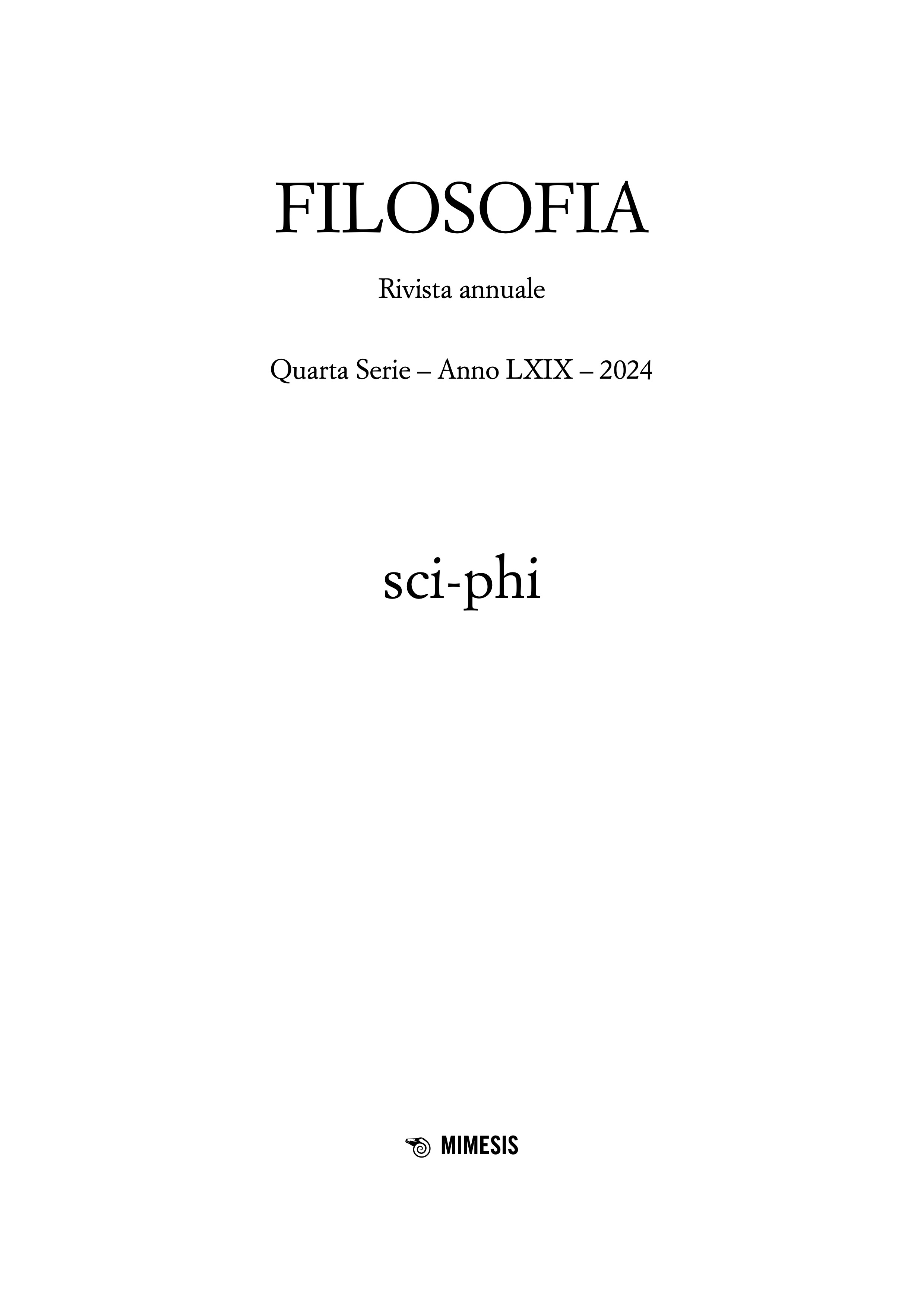"Lo sguardo proibito". Note sulla cinematografia distopica a partire da Siegfried Kracauer
DOI:
https://doi.org/10.13135/2704-8195/11178Keywords:
Siegfried Kracauer, Sci-Fi, utopian dystopia, anti-utopian dystopiaAbstract
This short essay arises from an attempt to examine contemporary or post-classical dystopian cinematography in the light of the specific approach with which Siegfried Kracauer interprets and exposes, respectively, the detective novel and propaganda cinema. The aim of the work is thus to reflect on the social dynamics that inform and are informed by dystopian cinema on the one hand, and the potential propagandistic content that such works can convey on the other. The thesis advanced here is that whereas "classical" dystopian cinematography aimed to denounce the outcomes of potential futures, contemporary dystopia, if analyzed from such a perspective, constitutes rather an apology or denunciation of the present itself.
Downloads
References
Baudrillard, Jean. 2010. Cyberfilosofia. Tr. it. L. Russo. Milano-Udine: Mimesis.
Benjamin, Walter. 2001. Opere complete II. Scritti 1923-1927. Ed. it. E. Ganni. Torino: Einaudi.
–––. 2006. Opere complete VII. Scritti 1938-40. Ed. it. E. Ganni. Torino: Einaudi.
–––. 2008. Opere complete I. Scritti 1906-1922. Ed. it. E. Ganni. Torino: Einaudi.
–––. 2010. I «passages» di Parigi. Tr. it. R. Solmi, A. Moscati, M. D. Carolis, G. Russo, G. Carchia e F. Porzio. Torino: Einaudi.
Debord, Guy. 2002. La società dello spettacolo. Tr. it. P. Sanziale. Bolsena: Massari.
I nuovi suprematisti apocalittici, “Il manifesto”, 21 settembre 2022. https://ilmanifesto.it/i-nuovi-suprematisti-apocalittici
Jameson, Fredric. 2005. “Progress versus Utopia; or, Can We Imagine the Future?” in Archeology of the Future. The Desire Called Utopia and Other Science Fictions. London-New York: Verso.
–––. 2007. Il desiderio chiamato Utopia. Tr. it. G. Carlotti. Milano: Feltrinelli. Epub.
Koch, Gertrud. 2000. Siegfried Kracauer. An introduction. Princeton: Princeton University Press.
Kracauer, Siegfried. 1974. Saggi di sociologia critica. Tr. it. U. Bavay, A. Gargano e C. Serra Borneto. Bari: De Donato.
–––. 1977. Cinema tedesco: dal «Gabinetto del dottor Caligari» a Hitler. Tr. it. G. Baracco, C. Doglio e E. Capriolo. Milano: Mondadori.
–––. 1982. La massa come ornamento. Tr. it. M. G. A. Pappalardo e F. Maione. Napoli: Prismi.
–––. 1990. Schriften. Herausgegeben von Inka Mülder-Bach, Band 5-1. Aufsätze (1915-1926). Frankfurt a.M: Suhrkamp.
Moylan, Thomas. 2000. Scraps of the Untainted Sky. Science fiction, Utopia, Dystopia. Boulder-Oxford: Westview Press.
O’Connell, Mark. 2021. Appunti da un Apocalisse. Viaggio alla fine del mondo e ritorno. Tr. it. A. Castellazzi. Bologna: il Saggiatore.
Prepper bunker, scorte di cibo e acqua, medicine, armi: quelli che si preparano alla fine del Mondo,“Corriere della Sera”, 28 agosto 2023. https://www.corriere.it/sette/esteri/23_agosto_28/fine-del-mondo-prepper-f5bdae3c-3f78-11ee-96ba-9892496e1c04.shtml?refresh_ce
Rosenfeld, Aaron S. 2021. Character and Dystopia. The Last Men. New York-London: Routledge.
Solmi, Sergio, e Carlo Fruttero, a cura di. 1959. Le meraviglie del possibile. Antologia della fantascienza. Torino: Einaudi.
Downloads
Published
How to Cite
Issue
Section
License
Copyright (c) 2024 Alessandro Carrieri

This work is licensed under a Creative Commons Attribution 4.0 International License.
This work is licensed under a Creative Commons Attribution 4.0 International License



